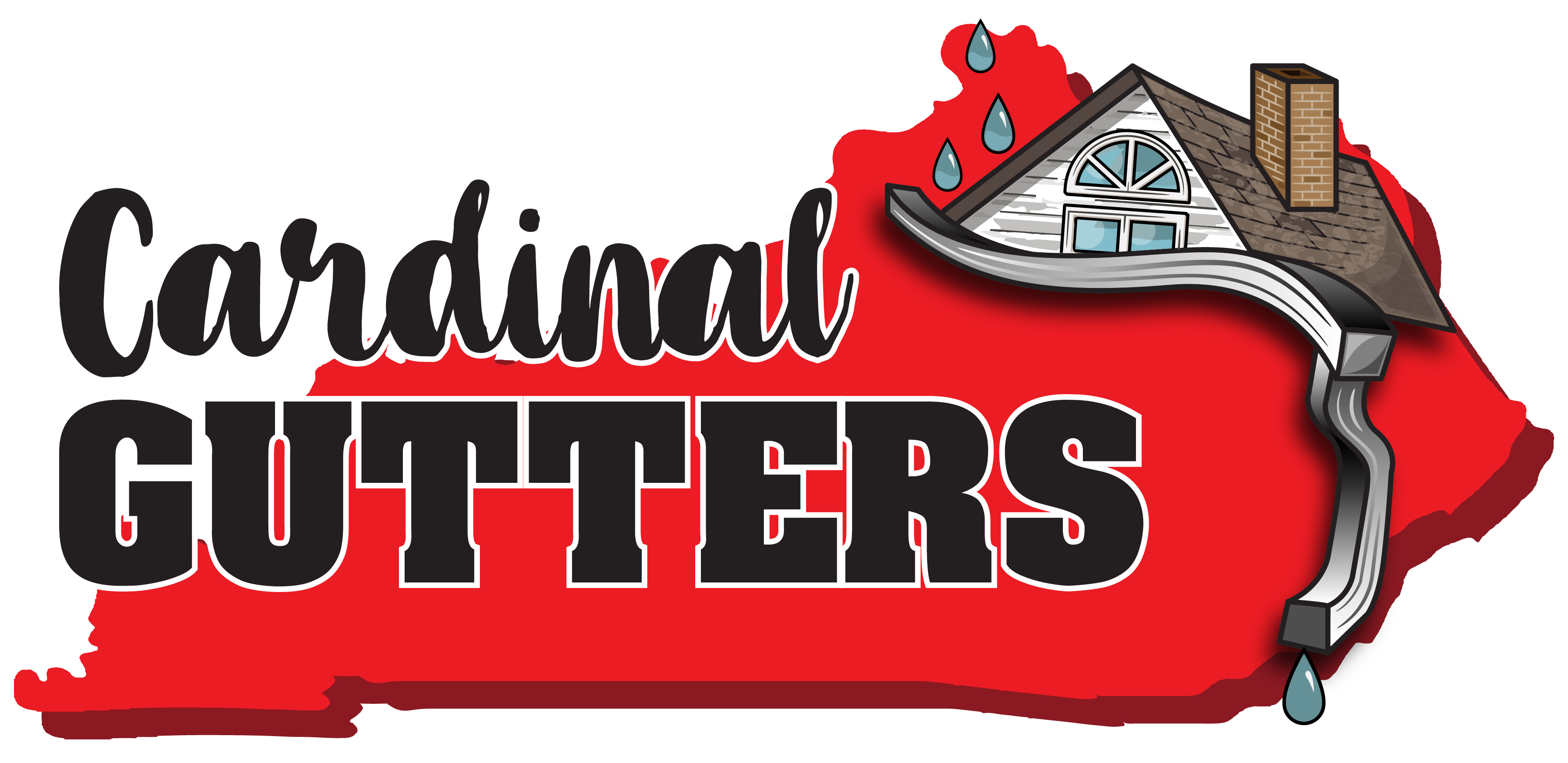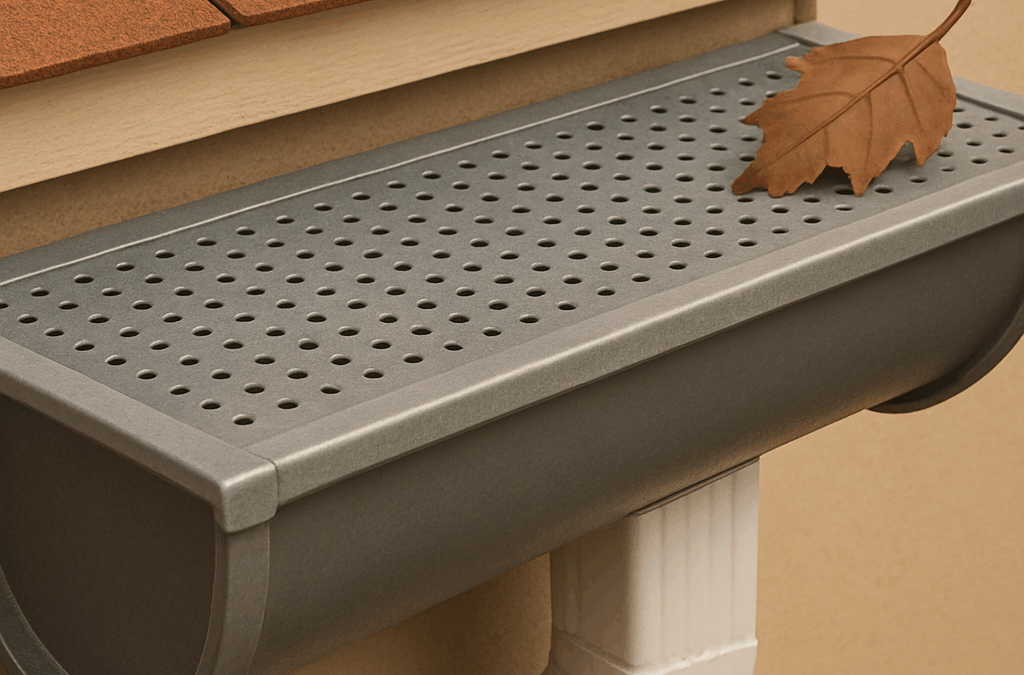When it comes to protecting your home from water damage, few systems are more important than your gutters. In a city like Louisville, Kentucky, where rainfall, falling leaves, and seasonal debris are regular concerns, keeping gutters clear is a year-round responsibility. One solution that has gained popularity among homeowners is the use of gutter guards—devices designed to help keep debris out of gutters while allowing water to flow freely.
This blog post offers a comprehensive, purely informational look at gutter guards—their purpose, types, benefits, and potential limitations—specifically for homes in the Louisville area. Cardinal Gutters provides this guide to help local residents better understand how gutter guards function and how they may support the performance of a home’s water drainage system.
What Are Gutter Guards?
Gutter guards are protective covers or inserts placed on or inside gutters to minimize blockages caused by leaves, twigs, pine needles, and other debris. While they don’t eliminate the need for maintenance entirely, they are designed to reduce how often clogs occur.
They come in a variety of styles, materials, and filtration levels, each offering different degrees of performance depending on the environment around your home.
Types of Gutter Guards
There is no one-size-fits-all gutter guard, and understanding the differences between each type can help homeowners in Louisville determine what might best suit their home’s needs.
1. Screen Gutter Guards
These feature large openings and are usually made of metal or plastic. They sit on top of the gutter and block larger debris like leaves and sticks.
- Pros: Inexpensive and easy to install
- Cons: May allow smaller debris through and can become clogged on top
2. Mesh Gutter Guards
Mesh guards have smaller holes than basic screens and offer more precise filtration.
- Pros: Excellent for blocking smaller debris like seeds or pine needles
- Cons: Can become clogged over time and may require occasional cleaning
3. Reverse Curve (Surface Tension) Guards
These are designed with a curved surface that guides rainwater into the gutter while deflecting leaves and debris.
- Pros: Designed for high water flow and minimal debris entry
- Cons: Typically more visible and often more expensive
4. Foam Gutter Guards
Made of porous foam, these guards sit inside the gutter and allow water to pass through while blocking debris.
- Pros: Simple and affordable
- Cons: May degrade over time, especially in wet or hot climates
5. Brush Gutter Guards
These resemble oversized pipe cleaners that sit inside the gutter and trap debris while letting water flow.
- Pros: Easy to install and remove
- Cons: Often trap debris within the bristles, requiring frequent cleaning
Why Gutter Guards Matter in Louisville
Louisville experiences a range of weather conditions throughout the year, including heavy rain in spring and summer, leaf fall in autumn, and the occasional freeze in winter. Gutter guards can help maintain water flow during these times by limiting the buildup of materials that might otherwise clog the system.
Homes in neighborhoods with mature trees or dense foliage may benefit the most from some form of gutter protection, particularly when dealing with oak, maple, or pine trees common in the region.
Advantages of Gutter Guards
Gutter guards are not a cure-all, but they can offer several benefits:
- Reduced Clogs: By blocking larger debris, guards help reduce the likelihood of clogged gutters and downspouts.
- Fewer Cleanings: While maintenance is still necessary, gutter guards can reduce how often cleanings are needed.
- Improved Water Flow: Clearer gutters allow rainwater to drain away from the home more effectively, helping to protect landscaping and foundations.
- Discourages Nesting: Guards can help deter birds, rodents, and insects from using gutters as a nesting area.
- Potential Longevity Boost: Less debris and standing water can reduce corrosion and wear on metal gutters.
Important Considerations Before Installation
While gutter guards can support a well-functioning gutter system, they are not without limitations. Here are a few things to keep in mind:
- Not Maintenance-Free: Debris can still accumulate on top or around guards, especially during heavy fall seasons.
- Installation Factors: Some gutter guards work better with specific gutter or roof types.
- Cost vs. Benefit: High-end systems can be more costly, so it’s important to weigh long-term maintenance reduction against the initial investment.
- Performance Varies: Effectiveness may depend on the specific design, material, and installation method.
Louisville’s Climate and Local Challenges
With Louisville’s mix of seasonal rains, tree-lined neighborhoods, and fluctuating temperatures, maintaining an efficient water drainage system is vital. Gutter guards may offer an extra layer of defense against the elements, especially for homes near parks, wooded lots, or older urban neighborhoods with established tree cover.
It’s also worth noting that winter ice and snow can create different stresses on gutter systems. Some gutter guards are better equipped to handle freezing temperatures than others, which should be factored into any decision.
Questions to Consider
Before selecting a gutter guard system for your home, consider the following questions:
- What types of trees are near your home?
- How often do your gutters need cleaning now?
- What kind of gutter system do you currently have?
- Are you experiencing water overflow or pooling during storms?
- How visible do you want the guard system to be from the ground?
Each answer can help guide the choice of gutter guard and determine whether they could be beneficial for your specific situation.
Conclusion
Gutter guards can be a practical tool for homeowners looking to reduce debris buildup and maintain efficient water flow through their gutter systems. In Louisville, Kentucky, where weather and natural debris can vary widely throughout the year, understanding the different types and how they function is essential to making informed decisions.

